Our Philosophy
We believe strongly in educating the whole child and addressing all of his or her intellectual, social/emotional, spiritual and developmental needs in order to best help him or her grow and learn. We believe the best way to do this is through play and allowing the process, not the product, to guide a child’s learning. This is accomplished by creating a nurturing classroom atmosphere that fosters both trust and respect and is built on the foundation of God’s love. Additionally, the classroom environment engages children in hands on activities and interactive experiences that allow individuals to extend his or her learning with the facilitation of a teacher. Notre Dame Preschool aims to create a safe and nurturing learning environment that:
- Fosters creativity, curiosity, and experimentation
- Allows children to work independently
- Enhances creative problem solving
- Encourages children to make choices
- Develops and improve social skills
- Develops a positive self image
- Expands oral language and communication
- Helps children to learn to work cooperatively within a small group
- Ignites interest in the world in which they live
- Nurtures spiritual, intellectual, social, emotional and physical development
Multiple offerings
3-Year-Old Preschool meets 2-5 days a week, 8:15 am - 11:00 am. Families may enroll in a 2, 3, 4 or 5-day a week program. (Regulations require all students in our Preschool Program to be toilet trained.)
3-Year-Old Full-Day Preschool meets 5 days a week, 8:15 am - 3:00 pm. (Regulations require all students in our Preschool Program to be toilet trained.)
4-Year-Old Pre Kindergarten program meets 5 days a week from 8:15am - 11:00am
4-Year-Old Extended-Day features full day on Tuesdays and Thursdays with 3pm dismissal. (Minimum: 6 students)
4-Year-Old Full-Day, 5 days a week from 8:15am - 3:00pm
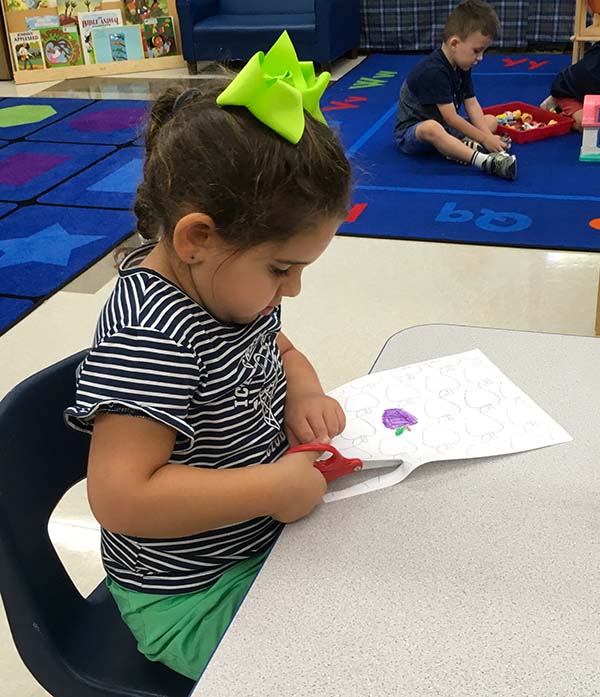
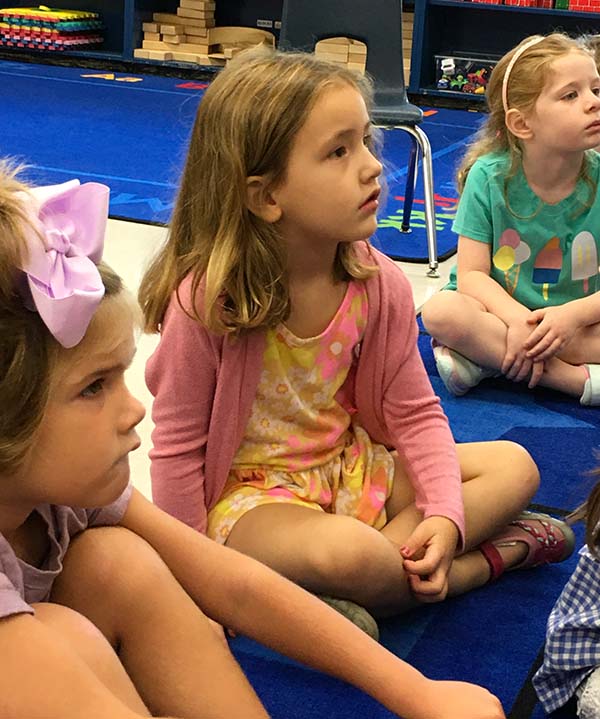
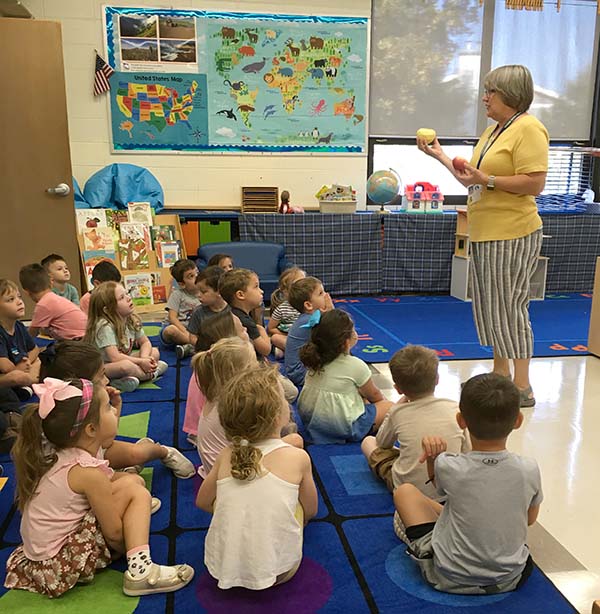
Daily Components
The children participate in large and small group activities that focus on key religion, literacy, math, social studies, and science concepts as well as explore learning centers during free choice time.
Circle Time provides opportunities to develop self-regulation, the ability to take turns, language, listening skills, and spirituality through prayer.
Table Time or Small Group allows children to develop cooperative learning skills like sharing, expand on individual learning styles, and utilize hands on materials. During Free
Choice Time gives children the chance to initiate play within learning centers. Centers are set up throughout the classroom and each one targets an area of learning. They include dramatic play, art, sensory table, floor toys such as blocks and cars, writing (fine motor), library, letters, math, and science. This is a key time of day to practice social skills such as interactive play and sharing, make independent decisions, express feelings, and communicate ideas in addition to expand on core pre-academic concepts at an individual pace.
Home & School Connection
The key to a successful school experience is a parent and teacher partnership. Parents are the child’s first teachers and we aim to support your efforts towards your child’s growth and development. Kaymbu is an online portfolio system that documents children’s work in the classroom through photos, videos, and teacher comments. Parents receive regular updates via email on their child’s progress in the classroom as well as classroom activities.
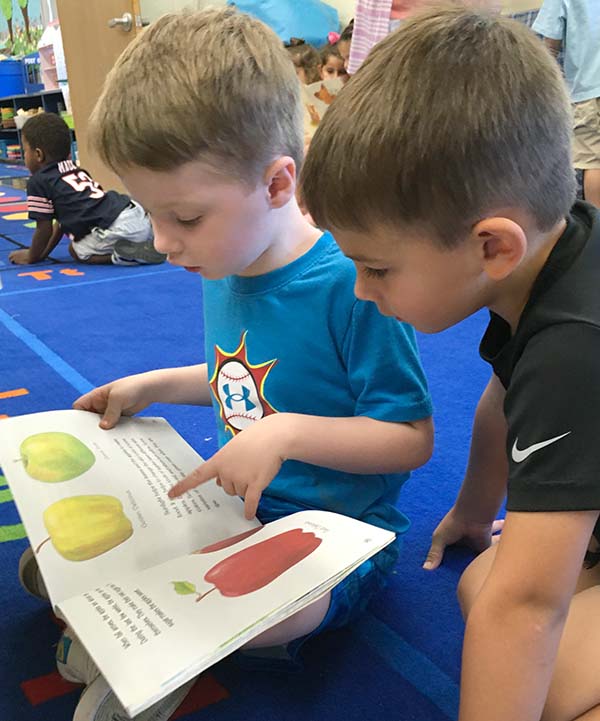
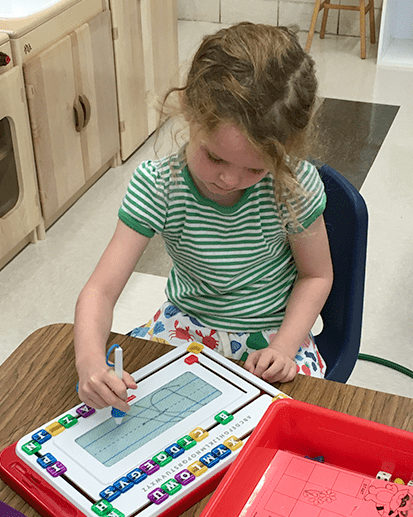
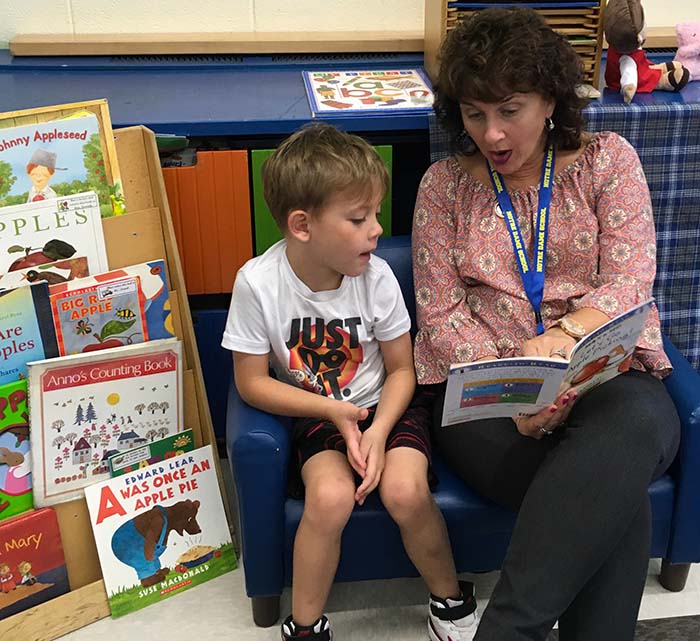
Curriculum Integration Of Development Growth
Spiritual
A loving environment, concrete experiences which allow for school and family sharing, opportunities to explore nature, provisions for personal and communal prayer
Social
Interaction with others, support and encouragement, scheduled small-group/large-group activities, time to listen and time to talk
Emotional
A secure environment that is safe, accepting, respectful, relaxed, non-threatening, and supportive. Experiences by which a child can succeed
Cognitive
Physical
Freedom of movement, flexible scheduling, sensory stimulation, manipulation of objects

